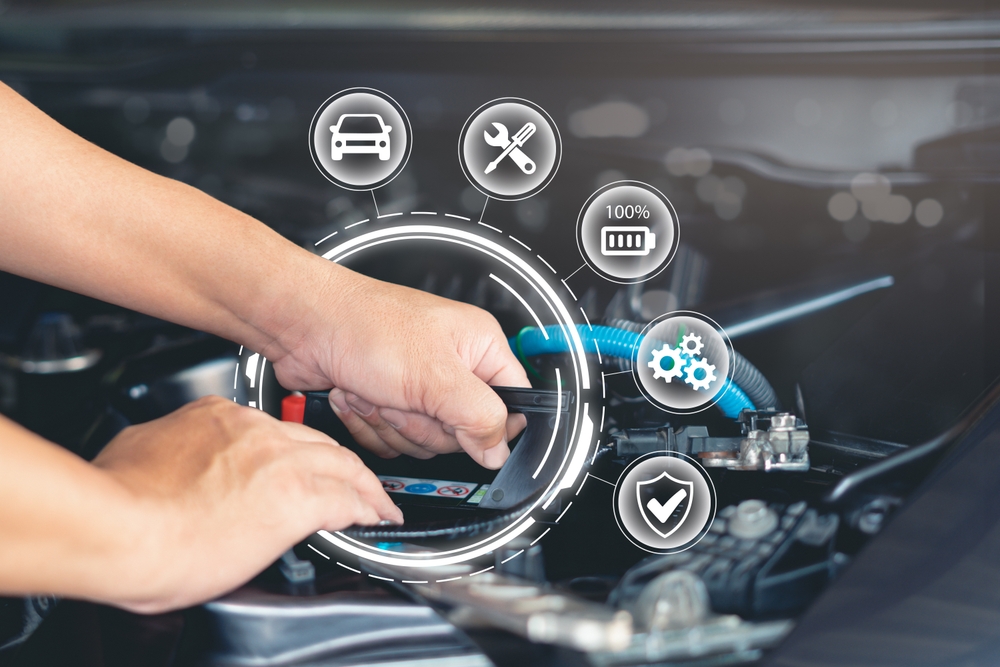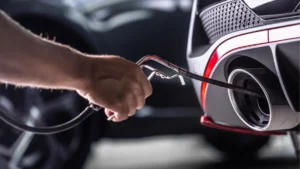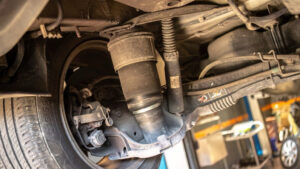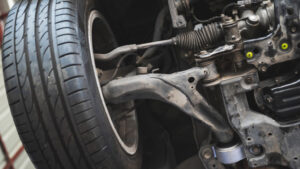To make sure your vehicle continues to perform at its best, routine maintenance is the most essential step.
From regular oil changes to brake inspections, routine maintenance plays an important role in extending the lifespan of your car and preventing costly repairs down the road.
But what exactly constitutes routine maintenance, and why is it so important?
What is routine maintenance and why is it important?
Routine maintenance refers to the scheduled upkeep and servicing tasks performed on a car to make sure that its optimal functioning and longevity. These tasks typically include oil changes, fluid checks, tire rotations, brake inspections, and filter replacements.
The importance of routine maintenance cannot be overstated, as it helps identify and address potential issues before they escalate into costly repairs.
By staying proactive with maintenance, car owners can maximize fuel efficiency, enhance safety on the road, and prolong the lifespan of their vehicles, ultimately saving time and money in the long run.
How often should you take your car in for maintenance?
The frequency of car maintenance depends on various factors, including the make and model of your vehicle, driving habits, and manufacturer recommendations outlined in the owner’s manual.
As a general guideline, most cars require routine maintenance every 6 months or 5,000 to 7,500 miles, whichever comes first.
However, some tasks, such as oil changes, may need to be performed more frequently, especially for vehicles subjected to heavy use or operating in harsh conditions.
How do you know when your car needs to be serviced?
While adhering to a routine maintenance schedule is important, it’s also vital to be vigilant for signs that your car requires immediate attention.
Here are six indicators to watch out for:
Braking
One of the most critical systems in your car, braking issues can signal the need for servicing. If you notice squeaking, grinding, or softness in the brake pedal, it could indicate worn brake pads or a more serious problem with the braking system. Prompt servicing can prevent brake failure and safety on the road.
Lacking Acceleration
A noticeable decrease in acceleration or sluggishness when pressing the gas pedal may indicate issues with the engine, fuel system, or transmission. Ignoring this symptom could lead to further damage and decreased performance over time. Servicing your car promptly can diagnose and address the underlying cause, restoring optimal acceleration.
Vibration
Excessive vibration, especially at high speeds or during certain driving conditions, may be a sign of tire imbalance, suspension problems, or issues with the drivetrain. Ignoring vibrations can lead to uneven tire wear, decreased handling, and potentially unsafe driving conditions. Addressing this issue promptly through servicing can help identify and rectify the root cause.
Stalling or Difficulty Starting
Difficulty starting your car or frequent stalling can be indicative of various issues, including a faulty battery, fuel system problems, or ignition issues. These symptoms can leave you stranded and are often a precursor to more severe mechanical issues if left unaddressed. Servicing your car can diagnose the underlying cause and prevent unexpected breakdowns.
Fuel Efficiency
A sudden drop in fuel efficiency, such as needing to refuel more frequently or experiencing a decrease in miles per gallon, may signal issues with the engine, fuel system, or exhaust system. Monitoring your car’s fuel efficiency and addressing any deviations from the norm through servicing can help identify and resolve potential problems, ultimately saving you money on fuel costs.
Shifting
Problems with shifting, such as difficulty changing gears, slipping gears, or grinding noises during shifting, can indicate issues with the transmission or clutch. Ignoring these symptoms can lead to further damage to the transmission and potentially costly repairs. Servicing your car promptly can diagnose and address transmission issues, ensuring smooth and reliable shifting.

Where to Find an Auto Repair Shop in Houston
Finding a reliable auto repair shop in Houston is crucial for maintaining your vehicle’s performance and longevity. With numerous options available, it’s essential to choose a reputable shop that offers quality service at competitive prices.
Here are some places to start your search:
Online Directories
Utilize online directories such as Yelp, Google Maps, or Angie’s List to find auto repair shops in your area. These platforms provide reviews and ratings from real customers, giving you insight into the quality of service provided by each shop.
Word of Mouth
Ask friends, family, and coworkers for recommendations on auto repair shops they trust. Personal referrals are often a reliable way to find a reputable shop that provides excellent service and customer satisfaction.
Dealer Service Centers
If your vehicle is still under warranty or you prefer dealership service, consider visiting a dealership service center affiliated with your car’s manufacturer. These centers often have certified technicians and access to genuine OEM parts.
Local Mechanic Garage
Independent mechanic garages are another option for auto repairs. Look for garages with experienced and certified technicians who specialize in your vehicle’s make and model.
Online Reviews and Ratings
Before choosing an auto repair shop, be sure to research online reviews and ratings to gauge the reputation and reliability of each shop. Pay attention to customer feedback regarding the quality of service, pricing, and communication.
Check Certifications and Affiliations
Verify that the auto repair shop is certified by reputable organizations such as the National Institute for Automotive Service Excellence (ASE) or is affiliated with industry associations like the Automotive Service Association (ASA).
By considering these factors and conducting thorough research, you can find an auto repair shop in Houston that meets your needs and provides quality service for your vehicle.
Vehicle Maintenance Checklist
By following a comprehensive maintenance checklist, you can stay proactive in caring for your car and have its optimal performance and longevity.
Here’s a breakdown of essential maintenance tasks to keep your vehicle in top condition:
Service Immediately
Address any urgent issues or warning signs immediately, such as unusual noises, warning lights, or fluid leaks, to prevent further damage and for safety on the road.
Monthly Check-up
Perform basic inspections monthly, including checking tire pressure, fluid levels, and lights, to catch any potential issues early and maintain your car’s overall health.
3-Month Check-up
Every three months, inspect the battery, belts, hoses, and brakes, and perform any necessary replacements or adjustments for reliability and safety.
6-Month Check-up
Schedule a comprehensive inspection and service every six months, including an oil change, filter replacements, and tire rotation, to keep your car running smoothly and efficiently.
1-Year Check-up
Annually, have your car thoroughly inspected by a professional mechanic, including checking the suspension, steering, and exhaust system, to address any wear and tear and prevent major repairs.
2-Year Check-up
Every two years, consider more extensive maintenance tasks such as coolant flush, transmission service, and spark plug replacement, to keep your vehicle’s systems in top condition.
Long-Term Check-up
For long-term maintenance, follow the manufacturer’s recommended maintenance schedule outlined in the owner’s manual and consult with a qualified mechanic for any additional services or inspections required based on your vehicle’s age and mileage. Regular maintenance is key to preserving your vehicle’s value and reliability for years to come.

How does routine maintenance contribute to fuel efficiency?
Simple tasks such as regular oil changes, tire rotations, and air filter replacements can significantly improve fuel economy. When the engine is properly lubricated with clean oil and the tires are correctly inflated and aligned, the vehicle experiences less resistance, resulting in better fuel consumption.
Additionally, maintaining clean fuel injectors and a properly functioning engine ignition system guarantees that fuel is burned efficiently, maximizing mileage.
What are the benefits of following a maintenance schedule?
Following a maintenance schedule offers numerous benefits that extend beyond just prolonging the lifespan of your vehicle.
Firstly, it enhances safety by identifying and addressing potential issues before they escalate into major problems that could compromise the safety of you and your passengers. Regular inspections and servicing also contribute to improved reliability, reducing the likelihood of unexpected breakdowns and costly repairs.
Moreover, a well-maintained vehicle tends to retain its value better, which can be advantageous if you decide to sell or trade it in the future.
How to maintain a vehicle you don’t use often
Maintaining a vehicle that sits idle for extended periods presents unique challenges, but with proper care, you are guaranteed that it remains in good condition when not in use.
- Regularly Start the Engine: Starting the engine periodically prevents components from seizing up and helps circulate fluids like oil and fuel, preserving engine health and functionality.
- Keep the Battery Charged: Utilize a trickle charger or battery maintainer to keep the battery charged, preventing it from discharging completely and prolonging its lifespan.
- Maintain Proper Tire Pressure: Check tire pressure regularly and inflate them to the recommended levels to prevent flat spots and sidewall damage, ensuring safer driving when the vehicle is back in use.
- Protect Exterior and Interior: Store the vehicle in a covered area or utilize a car cover to shield it from the elements, while also employing interior safeguards like moisture absorbers to prevent mold and mildew growth.

Auto Maintenance FAQs
Auto maintenance can raise many questions, from costs to DIY versus professional services.
How much does car maintenance cost?
Car maintenance costs vary widely depending on factors like vehicle make, model, age, and specific services needed, ranging from routine oil changes to major repairs.
What does check engine light mean?
The check engine light illuminates when the vehicle’s on board diagnostics system detects a potential issue with the engine or emissions system, prompting further inspection to identify the underlying problem.
How long can you drive with check engine light on?
It’s best to address the issue indicated by the check engine light as soon as possible, as prolonged driving with the light on could lead to further damage and potentially more expensive repairs.
Can routine maintenance be performed at home or should it be done by a professional?
While some routine maintenance tasks like oil changes and filter replacements can be performed at home by those with the necessary skills and tools, more complex procedures and diagnostics are often best left to trained professionals for proper execution and avoid potential safety risks.
Finding a Trusted Mechanic in Houston, TX with Status Automotive & Collision
In Houston, Texas, reliable transportation is a must—and thus, a trusted mechanic is an important key player.
Status Automotive & Collision stands out in the automotive industry as we offer top-notch services to keep vehicles running smoothly.
Our team of skilled professionals is here to provide exceptional care for your vehicle. With their expertise and commitment to customer satisfaction, you can have peace of mind knowing that your car is in good hands.
When searching for a mechanic in Houston, TX, partner with Status Automotive & Collision for quality service and reliable results. Book an appointment with us today!




